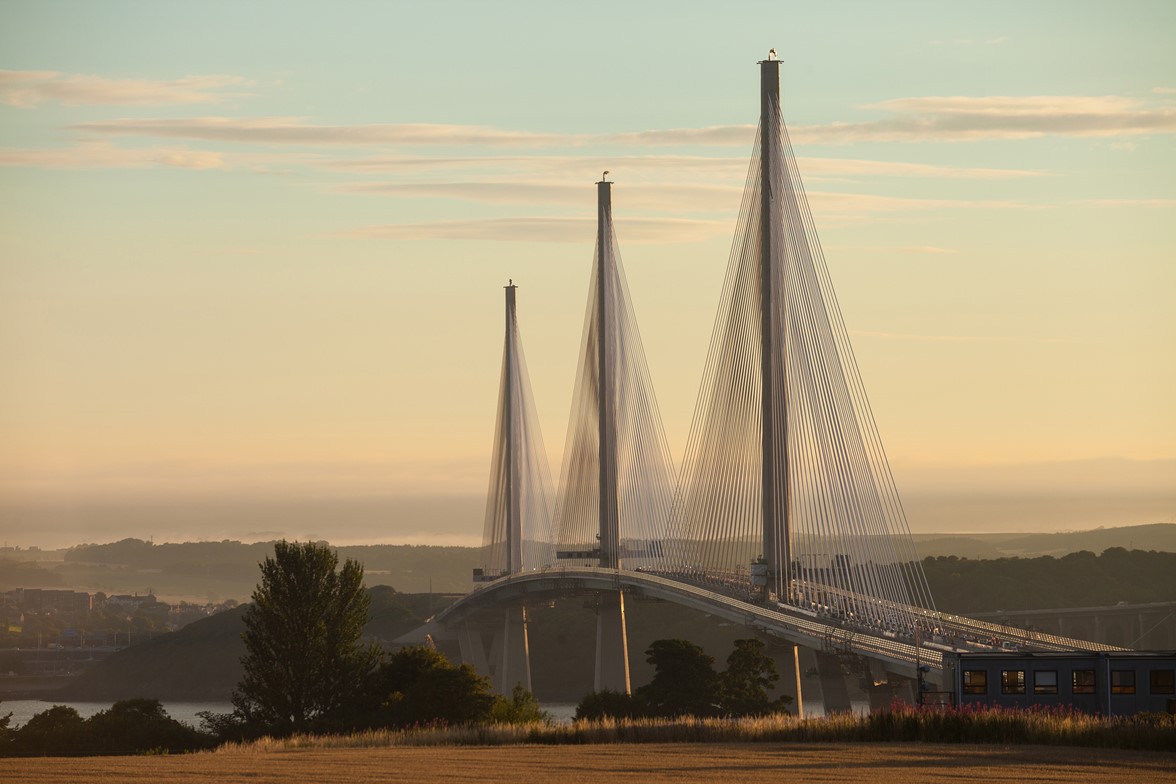A Decade of Transport Investment

Cabinet Secretary for Economy, Jobs and Fair Work looks back on transport investment over the last ten years and looks to 2018. Keith Brown said:
“This year has proven to be a landmark one for transport in Scotland.
“2017 marked ten years of sustained investment in our roads, rail and other modes of transport by the Scottish Government . A decade that has seen nearly £20 billion pumped into much needed transport initiatives that will improve connectivity around Scotland and help stimulate Scotland’s economic growth.
“It was our determination that we would move transport into the 21st century, following years of under-investment by previous governments, and that investment is now starting to reap huge dividends.
“Our flagship road schemes speak for themselves – in less than 10 years since it was first announced to Parliament, we have opened the new £1.35 billion Queensferry Crossing on the Forth Estuary, a complex engineering feat that has put our workmanship to the front and centre of global engineering. We are immensely proud of that achievement, but is only one of many.
“The motorway network around Glasgow has seen the M74 ‘Missing Link’ completed in addition to the M80 upgrade, and a further half billion pound investment has delivered major improvements to the motorway network around Glasgow including a new M74 Raith Interchange. Since its opening earlier this year, it is re-energising our largest city with the wider benefits being felt right across central Scotland and beyond.
“We have completed the first stage of dualling the A9 all the way from Perth to Inverness, and planning is well underway to dual the A96 from Inverness to Aberdeen – part of our ambition to connect all of Scotland’s cities by motorway or dual carriageway.
“We shouldn’t ignore the smaller, but no less challenging schemes which have significant impacts right across the country. A new viaduct built on the side of Loch Lomond at Pulpit Rock was complex but has removed traffic signals which have been there for nearly thirty years! And a much needed bypass at Crianlarich has reduced traffic in the town by half - both improvements benefitting road users and local communities along the A82.
“In Aberdeenshire, we promised to remove the A96 bottleneck at Inveramsay Bridge and have done just that. And anyone in Aberdeen will know that the bypass, the longest road currently under construction in the UK, is moving into its final phases. This will see 58km of new dualled road wind its way around our oil and gas capital, improving journey times and delivering over £6bn of economic benefits and 14,000 new jobs over 30 years.
“We’ve made significant improvements to key areas on the A75 and A77 delivering better connections to and from our key port at Cairnryan, and work on new bypasses for Dalry and Maybole are moving apace.
“Crucially this investment is helping to make our roads safer too. Although we have seen a reduction of over a third in people killed and seriously injured on our roads, we will invest further.
“We want to see more people walking and cycling with all of the associated health and social benefits, so have doubled our investment on active travel to £80 million. Over 500 kilometres of new walking and cycling infrastructure has been built across Scotland, with over 150 kilometres more resurfaced. Over 230,000 children have received ‘Bikeability’ cycle training to make young riders better, as well as encourage participation into adult life.
“Rail is now more popular than ever having seen investment of nearly £8 billion since 2007 to enhance the network. This has seen services increase to 2,300 daily with a further 200 from next year. 160 extra carriages have been added to ScotRail’s fleet with an additional 200 to follow, as well as 75 new coaches planned for the Caledonian Sleeper.
“The Borders Railway has returned services there for the first time in nearly 50 years, the new Stirling-Alloa-Kincardine line has opened, as has the Airdrie-Bathgate line and its new stations. The network has expanded with 76 kilometres of new track built, and we’re electrifying the rail network across the central belt which will transform rail travel with more capacity and quicker journeys across many routes.
“We’ve capped fares at or below inflation to make rail a more affordable transport alternative. We’re linking more journeys by making more cycle spaces at key locations on the rail network, and wi-fi is being rolled out around the country.
“Our substantial and on-going investment to 2019 will truly transform the rail network and give passengers and freight users in Scotland the best railway they’ve ever had.
“Scotland’s unique geography means ferry services are crucial for our island and remote communities, which is why we’re investing over £180 million this year alone. We’ve delivered seven new vessels with two green ‘dual-fuel’ vessels currently being built at Ferguson’s shipyard on the Clyde, and port and harbour infrastructure upgrades are under way across the network.
“On buses, over £200 million is being spent this year to retain the National Concessionary Travel Scheme, and we have widened entitlement to ensure more people can enjoy the benefits of free travel anywhere in Scotland. Investment in smart ticketing and payment technology continues to modernise our transport networks.
“£60 million has been spent on lifeline air services for remote communities, as well as help introduce 25 new international air routes to and from Scotland.
“Transport is therefore at the very centre of people’s lives. It supports thousands of jobs, and creates thousands more, including graduate and modern apprenticeship places for our young people. Transport connects businesses to the marketplace, and people to work and leisure. And transport gives our economy confidence – if the mechanisms are in place to help an economy to thrive, then businesses will continue to invest.
“As we look to 2018, vital links are needed to ensure a vibrant and successful future, and transport will remain at the heart of our plans for Scotland.”